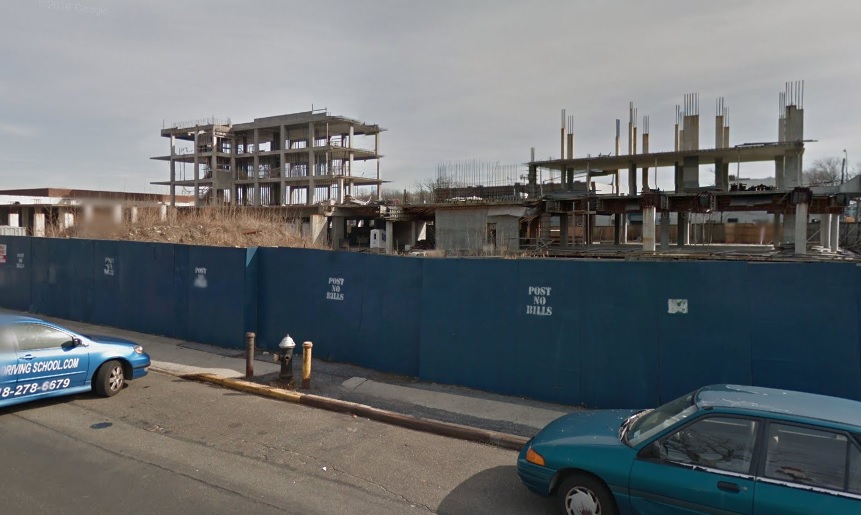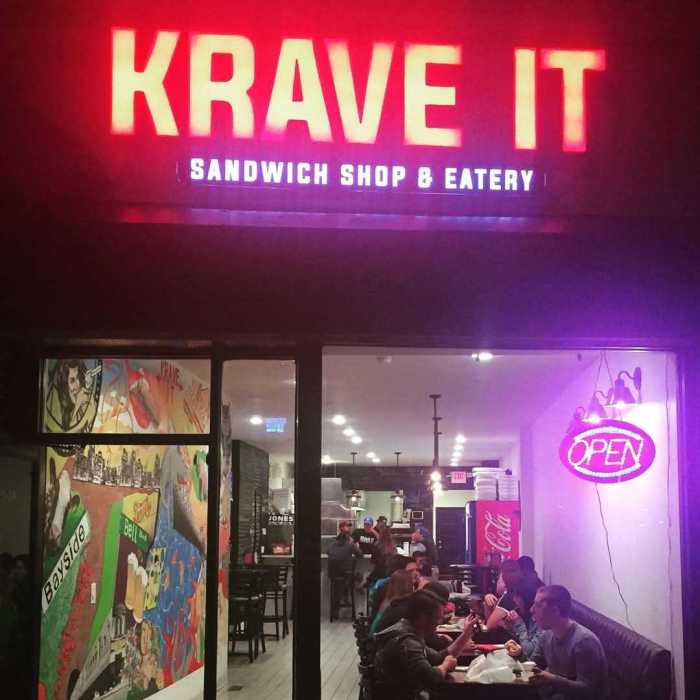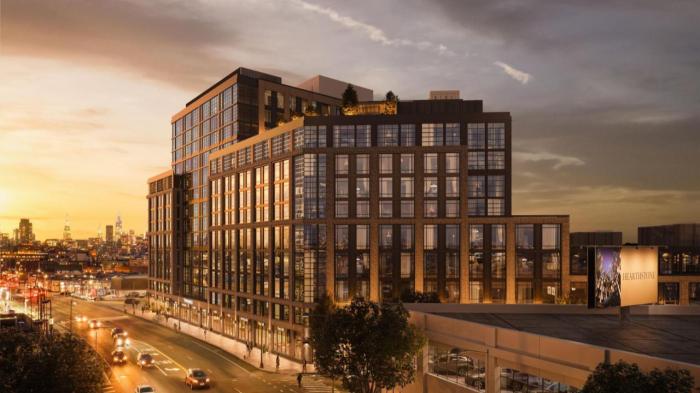A mixed-use complex that would have brought 219 parking spots to Astoria will cut those spots down to 135 now that all 84 units will be considered affordable.
The site at 19-73 38th St. was granted a variance in 2005 to allow the development of a four-story mixed use building. In 2008, the developer was approved by the Department of Buildings to start building but midway through the project, the company ran out of money and sold the property.
The current owner, 19-80 Steinway LLC, purchased the property in 2013 and entered into an agreement with the city to turn the condo building into an affordable housing project. Now, the developers are asking the Boards of Standards and Appeals if they can reduce the number of parking provided to save money.
“Now that the project is 100 percent affordable, in order to maintain that affordable housing program, providing stackers that are required to have 219 spaces is prohibitively costly and affects the program of the building,” said Eleanore Martins, attorney for the developers at a Community Board 1 meeting on Tuesday.
Astoria has experienced a development boom along with re-configuring of major streets due to the mayor’s Vision Zero initiative that has caused some loss of parking. Some board members argued that the cut would inconvenience tenants.
Martins argued that studies have shown tenants living in affordable housing tend to have a lower car ownership rate. The developers technically do not need to provide any parking because their building is in an M1-1 zoning district and Martins said that, for comparison, the neighboring R5 zoning district only requires 50 parking spots.
The spaces would all be leased with priority going to tenants. The valet parking lot would have 66 spots reserved for the commercial space, eight for the doctor’s office on the first floor and 61 spots for tenants or those interested in leasing.
Richard Khuzami, board member and chair of the parks, recreation and cultural services committee, suggested that the developer provide a shuttle to train stations if they decide to get rid of the parking spaces.
“We should keep in mind that this facility is out of the way in terms of transportation other than some buses,” he said. “It’s a very long trek to the train.”
Bernard Calagary, a member up Build Up NYC, said arguing that they should be granted this amendment because they are providing affordable housing is “disingenuous.”
“They throw the term around affordable housing and they just seem so disingenuous when you throw around the numbers they just mentioned,” he said. “These are not section 8 apartments.”
Martins said 17 units would go for 80 percent of the area median income (AMI) and the remaining apartments for 130 percent AMI.
According to the department of Housing and Urban development (HUD), a family of four making 130 percent AMI would have an income of $117,780. A family of two would have a combined annual income of $94,250.
Elizabeth Erion, chair of the land use and zoning committee, voted to approve the application with one stipulation.
“In the event there is an increase in demand for parking spaces that the community board will request a reopening of this variance,” she said. “We’re doing this simply because the term of the variance is not limited and we want to be able to monitor the situation and have an option.”
The majority of the board approved the plan and the Boards of Standards and Appeals will have the final vote.



































